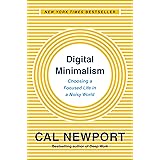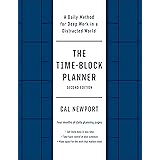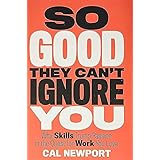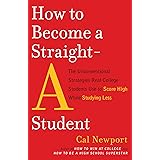
Enjoy fast, free delivery, exclusive deals, and award-winning movies & TV shows with Prime
Try Prime
and start saving today with fast, free delivery
Amazon Prime includes:
Fast, FREE Delivery is available to Prime members. To join, select "Try Amazon Prime and start saving today with Fast, FREE Delivery" below the Add to Cart button.
Amazon Prime members enjoy:- Cardmembers earn 5% Back at Amazon.com with a Prime Credit Card.
- Unlimited Free Two-Day Delivery
- Streaming of thousands of movies and TV shows with limited ads on Prime Video.
- A Kindle book to borrow for free each month - with no due dates
- Listen to over 2 million songs and hundreds of playlists
- Unlimited photo storage with anywhere access
Important: Your credit card will NOT be charged when you start your free trial or if you cancel during the trial period. If you're happy with Amazon Prime, do nothing. At the end of the free trial, your membership will automatically upgrade to a monthly membership.
Buy new:
$22.44$22.44
Ships from: Amazon.com Sold by: Amazon.com
Save with Used - Good
$9.99$9.99
Ships from: Amazon Sold by: Dream Books Co.





Download the free Kindle app and start reading Kindle books instantly on your smartphone, tablet, or computer - no Kindle device required.
Read instantly on your browser with Kindle for Web.
Using your mobile phone camera - scan the code below and download the Kindle app.

OK
 Audible sample Sample
Audible sample Sample 


A World Without Email: Find Focus and Transform the Way You Work Forever (from the NYT bestselling productivity expert) Paperback – March 4, 2021
Purchase options and add-ons
***NEW YORK TIMES BESTSELLER***
Feel like you're always drowning in email? How much more would you achieve without them - and how much happier would you be?
'A World Without Email crystallizes what so many of us feel intuitively but haven't been able to explain: the way we're working isn't working.' Drew Houston, co-founder and CEO of Dropbox
________________
Emails are an integral part of work today. But the 'kind regards', forwards and attachments we check every 5.4 minutes are making us unproductive, stressed and costing businesses millions in untapped potential.
Bestselling author of Deep Work and Digital Minimalism, Cal Newport, is here to offer a radical new vision - a world without email. Drawing on sociology, behavioural economics and fascinating case studies of thriving email-free companies, Newport explains how this modern tool doesn't work for our ancient brains and provides solutions you can implement today to transform your workday into one without constant, distracting pings.
Revolutionary and practical, A World Without Email will liberate you to do your most profound, fulfilling and creative work - and be happier too.
________________
'If you are currently drowning in endless email and not sure where to start: read this book' Emma Gannon, author of The Multi-Hyphen Method
'Read this superb book. It might just change your life; it's changing mine' Tim Harford, author of How To Make The World Add Up
'This is a bold, visionary, almost prophetic book that challenges the status quo' Greg McKeown, author of Essentialism
- Print length296 pages
- LanguageEnglish
- PublisherPortfolio Penguin
- Publication dateMarch 4, 2021
- Dimensions6.02 x 0.91 x 9.21 inches
- ISBN-100241341418
- ISBN-13978-0241341414
The Amazon Book Review
Book recommendations, author interviews, editors' picks, and more. Read it now
Frequently bought together

Similar items that may deliver to you quickly
 The Attention Capital Principle The productivity of the knowledge sector can be significantly increased if we identify workflows that better optimize the human brain’s ability to sustainably add value to information.Highlighted by 1,677 Kindle readers
The Attention Capital Principle The productivity of the knowledge sector can be significantly increased if we identify workflows that better optimize the human brain’s ability to sustainably add value to information.Highlighted by 1,677 Kindle readers The Specialization Principle In the knowledge sector, working on fewer things, but doing each thing with more quality and accountability, can be the foundation for significantly more productivity.Highlighted by 1,467 Kindle readers
The Specialization Principle In the knowledge sector, working on fewer things, but doing each thing with more quality and accountability, can be the foundation for significantly more productivity.Highlighted by 1,467 Kindle readers The Process Principle Introducing smart production processes to knowledge work can dramatically increase performance and make the work much less draining.Highlighted by 1,380 Kindle readers
The Process Principle Introducing smart production processes to knowledge work can dramatically increase performance and make the work much less draining.Highlighted by 1,380 Kindle readers
From the Publisher

|
|
|
|
|---|---|---|
|
|
|
|

Product details
- Publisher : Portfolio Penguin (March 4, 2021)
- Language : English
- Paperback : 296 pages
- ISBN-10 : 0241341418
- ISBN-13 : 978-0241341414
- Item Weight : 2.31 pounds
- Dimensions : 6.02 x 0.91 x 9.21 inches
- Best Sellers Rank: #152,449 in Books (See Top 100 in Books)
- #117 in College & University Student Life (Books)
- #139 in Social Aspects of Technology
- #3,122 in Motivational Self-Help (Books)
- Customer Reviews:
About the author

Cal Newport is an Associate Professor of Computer Science at Georgetown University who writes for general audiences about the intersections of culture and technology. He is the author of eight books, including, most recently, Slow Productivity, A World Without Email, Digital Minimalism, and Deep Work. These titles include multiple New York Times bestsellers and have been published in over 40 languages. Newport is also a contributing writer for The New Yorker and the host of the Deep Questions podcast.
Customer reviews
Customer Reviews, including Product Star Ratings help customers to learn more about the product and decide whether it is the right product for them.
To calculate the overall star rating and percentage breakdown by star, we don’t use a simple average. Instead, our system considers things like how recent a review is and if the reviewer bought the item on Amazon. It also analyzed reviews to verify trustworthiness.
Learn more how customers reviews work on AmazonReviews with images
-
Top reviews
Top reviews from the United States
There was a problem filtering reviews right now. Please try again later.
The clarity in Cal's thinking is second to none. He is garnering a rabid fan base because of his demonstrable success as he practices what he preaches. I just discovered his podcast (Deep Questions), and absolutely love that too. He speaks like he writes: with precision and wisdom; Every word is concise and useful. And of course, his blog is central to his hive of followers, which I have not consumed that much of to be honest. But I read is prior works of Digital Minimalism, Deep Work, and So Good they Can't Ignore You. They were all extremely satisfying reads. You'll love his work if you like personal development, self-actualization, productivity, and living an intentional, well-balanced life.
I'm a sucker for research books on the effects of modern-day consumer tech. And Cal owns this space. He puts his professorial research skills to use as a purveyor of desperately needed insights in a world dominated by distraction. We check our email inboxes every six minutes. Email has "transformed our workflow" under our noses. It's a "radical shift" in work culture, which has amounted to a drag on productivity. It's a "constant state of unease in a low-grade background of humdrum anxiety." Those are just a couple of gem, hard-hitting quotes you'll find in this book.
Consistent with his other books, Cal keeps the table of contents simple and efficient. It has two parts: 1) The Case Against Email and 2) Principles in a World without Email. I'm a practicing lawyer and I very much appreciate Cal's thesis type of writing. His prose has always been crisp, punchy, and persuasive. He comes across in all mediums as honest, smart, and prescient.
I will check back in when I finish the book, or will post my final review on Goodreads. Cal, thank you SO much. I've been telling my friends that I've been waiting for your follow-up to Digital Minimalism. I learned of this book through your podcast feature on Todd Henry's Accidental Creative.
It is true that you can spend the whole day in your inbox. You can feel productive - so many messages sent! So many people can see how responsive you are! - without actually delivering much in the whole day. You can offload work to other people just by clicking “reply”. You can FYI everyone in the team (and beyond) in a pretense that their silence means agreement. All of that is easy with email, and all of that is oftentimes unnecessary. We are inundated with excessive messages. Cal - in the first part of the book - traces the reasons to the fundamental property of email being vastly quicker and cheaper than paper letters or phone calls. Couple that with our innate tendency to respond to social cues, the reasoning goes, and no wonder the inbox became the place we visit every couple minutes. The author claims this reinforcing relation between the electronic communication and human psychology to be so strong that he uses the argument of “technological determinism”. Back in the nineties, the offices switching from paper to email expected reductions of time spent on communication, but it turned out the volume of messaging increased dramatically, kept growing ever since and became the new normal in the office work.
But, I dare to say, we are not losing precious time and attention on corporate spam because email - as a technology - destined us to do so. I believe the whole situation is just convenient to many employees, who would not have that much to do if emails stopped flowing in. Moreover, many organisations are toxic, with people fearing of being judged as slackers without email trail justifying their efforts. Last, but not least - engaging in email threads is easier than actual knowledge work. I believe that rather than the effortlessness of the technology, it is the prevalent office conformism and minimisation of mental effort that lead to excessive time spent on emails. As Cal notices, “the underlying value of the constant electronic communication that defines modern work is never questioned”. This value is low - but it’s part of the common landscape, and it is rather a minority of people who tend to question how their companies work. On the other hand, there are some people who do value uninterrupted time - mainly in the knowledge-based jobs (where quality suffers greatly from interruptions); the second part of the publication is devoted to existing communication/collaboration techniques used in IT, engineering and scientific organisations.
While I have some doubts about the reasoning shown in the “why email hurts us” part of the book, it was more enjoyable to read than the “solutions” part, which is perfectly in order but felt just a bit dull. Moreover, I don’t feel there is anything radical or visionary to warrant the “reimagination” of work promised in the title. Setting up processes for repeatable work, using task boards, reducing people synchronisation by giving them autonomy - none of that is new or cutting-edge. It’s common sense applied to motivated people.
It is a good book, it highlights an important problem, it is well written - but I am not sure if it can spark a revolution. Still, food for thought. Recommended.
The book is in two parts:
Part One describes the wasteful work practices which email has created, mainly constant shifting from task to task as new demands on our time arrive minute after minute in our email boxes.
Part Two describes a series of alternative ways to structure work which avoid these inefficiencies.
To be clear, Newport is not literally suggesting that we all stop using email: it is an incredibly efficient (virtually free) means of asynchronous communication. But that is exactly the problem: it is so low cost FOR THE SENDER that it encourages dumping work onto others by sending an endless dream of emails, and in return getting an endless stream of emails from people dumping work on you.
His bottom line is that electronic communications I particular, and computers in general, have changed the ECOLOGY of work. We shouldn’t be surprised that ad hoc structures largely built on pre-e-mail work places are not the best way to organize the new electronic workplace.
Lots of room for thought here. Read the book, then think about how we should reorganize our work!
Top reviews from other countries
Very important book and hope I will implement key ideas to make my day to day life better.
Ich finde Cal Newport ist einer der Wichtigsten Denker unserer Zeit und räumt die konstante massen-Kommunikation am arbeitsplatz einfach mal von hinten auf.
I have been in jobs where the rate of email and the expectation of quick responses has meant that I am constantly checking emails and reacting to requests. From the start of day, till the end of the week, all the attention and work is around email. The issue with this is you are constantly in reactive mode, spend more time on reading and responding to emails than actual work on tasks. This is what Cal refers to as the Hyperactive Hive Mind.
If you have read Deep Work then you will appreciate how important focused time is to produce high quality output and workplaces today with their constant focus on email or IM communications means that people are constantly trying to multitask and have divided attention spans. In the first part of the book, Cal presents the evidence of how Email reduces productivity, makes us miserable and has a mind of it's own.
The second part of the book focuses on the principles to allow for solutions for this. It also has case studies of organisations where they have adopted these principles and dramatically reduced the need and use of email. The four principles covered are the Attention Capital Principle, The Process Principle, the Protocol Principle and Specialization Principle.
The book has an academic style of writing which you will be used to if you have read Cal's other books and I think it really helps do a great job of painting the picture of how email communication became the problem it is now, how it impacts as and what we can do about it. The solutions aspects of the book aren't revolutionary but combined with the case studies and examples of what can be done, they provide a great framework for a change of attitude towards email and what can be done to actually improve productivity in the workplace.
If you are an employee you may not have as much influence in some of the solutions but you may be able to influence those you work with to understand the detrimental effect of email and other solutions including the use of collaborative software. Organisation leaders and owners could really get inspired with what is possible without email to start bringing in changes to how they work. It is not an easy change but one that is desperately needed. I urge you to read this book, also read Deep Work if you haven't and listen to Cal Newport's podcast - Deep Questions which are a great resource to help to adopt this mindset. I will continue to revisit these three resources and play my part in my workplace setting. We can collectively start to make things better. Let's not give in to the norm of the Hyperactive Hive Mind and create changes to support us to work in a more productive and focused manner.
Reviewed in the United Kingdom on March 14, 2021
I have been in jobs where the rate of email and the expectation of quick responses has meant that I am constantly checking emails and reacting to requests. From the start of day, till the end of the week, all the attention and work is around email. The issue with this is you are constantly in reactive mode, spend more time on reading and responding to emails than actual work on tasks. This is what Cal refers to as the Hyperactive Hive Mind.
If you have read Deep Work then you will appreciate how important focused time is to produce high quality output and workplaces today with their constant focus on email or IM communications means that people are constantly trying to multitask and have divided attention spans. In the first part of the book, Cal presents the evidence of how Email reduces productivity, makes us miserable and has a mind of it's own.
The second part of the book focuses on the principles to allow for solutions for this. It also has case studies of organisations where they have adopted these principles and dramatically reduced the need and use of email. The four principles covered are the Attention Capital Principle, The Process Principle, the Protocol Principle and Specialization Principle.
The book has an academic style of writing which you will be used to if you have read Cal's other books and I think it really helps do a great job of painting the picture of how email communication became the problem it is now, how it impacts as and what we can do about it. The solutions aspects of the book aren't revolutionary but combined with the case studies and examples of what can be done, they provide a great framework for a change of attitude towards email and what can be done to actually improve productivity in the workplace.
If you are an employee you may not have as much influence in some of the solutions but you may be able to influence those you work with to understand the detrimental effect of email and other solutions including the use of collaborative software. Organisation leaders and owners could really get inspired with what is possible without email to start bringing in changes to how they work. It is not an easy change but one that is desperately needed. I urge you to read this book, also read Deep Work if you haven't and listen to Cal Newport's podcast - Deep Questions which are a great resource to help to adopt this mindset. I will continue to revisit these three resources and play my part in my workplace setting. We can collectively start to make things better. Let's not give in to the norm of the Hyperactive Hive Mind and create changes to support us to work in a more productive and focused manner.











![Deep Work: Rules for Focused Success in a Distracted World [Paperback] [Jan 01, 2016] Newport, Cal](https://images-na.ssl-images-amazon.com/images/I/61TkOFwquPL._AC_UL116_SR116,116_.jpg)













